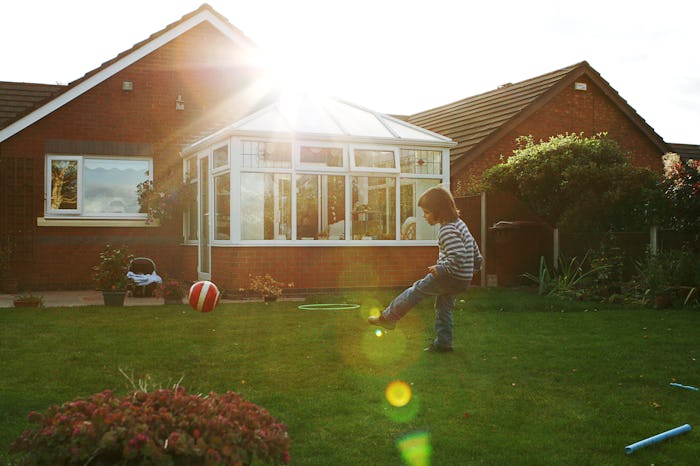We have now entered the “social distancing” stage of the novel coronavirus pandemic, and parents know that kids find this impossible to do. The World Health Organization advises against touching your eyes, nose, or mouth, and keeping a 3-foot distance from anyone sneezing or coughing — certainly good measures in theory. Chaperoning a kindergarten field trip last week, I was shocked at the amount of times I had to admonish someone not to lick someone else. The response, therefore, has been to close tens of thousands of schools virtually across the nation (New York City public schools are about the last still operating, with Mayor Bill De Blasio determining that the public costs of closing outweigh the benefits). Kids are already joking about their “coronacation” or being “Q’ed up” when under quarantine. Humor can help lighten a situation, but the reality is that many families are scrambling to find child care in light of school and daycare closures.
Almost immediately upon announcement of school closures, parents in my own Pittsburgh community began extending a network of support to each other. Jillian Edmunson is a veterinarian technician in a small office of nine staff, four of whom have children. Her in-laws are nearby, but are high-risk if they contract COVID-19, so she cannot turn to them for support. One solution for Edmunson and her coworkers is to take their kids to work and swap checking in on the group doing online schoolwork. “Tablets, wifi, and Pirate Booty will have to get us through as we take shifts managing them between patients,” says Edmunson.
She is unsure of how her second grader will do with this type of learning, but thankfully has seen several neighbors step up to offer child care. Just around the corner, a single mom of three, Dayle Hall, knows she can help some, but also knows her limits. “I could possibly take on one extra kid who is older and mature enough to do their work with minimal supervision from me,” she wrote in a community group. “I’ll only be able to check on my kids during my breaks. If you are a single parent who needs to work outside the home with one responsible child, let me know.”
It’s a tricky balance between adequate social distancing and helping out those who do not have another solution.
As needs grew, Colleen Libstaff made a spreadsheet of who needs coverage, and when. Moms began to fill in when they are available to babysit on one side of the sheet, with moms noting when they need coverage on the other. It’s a tricky balance between adequate social distancing and helping out those who do not have another solution to support their family. Telecommuting is not an option for everyone.
Our community is not unique. Nikki Pride in St. Louis is a single mom of twin kindergarten boys who drives a school bus to make ends meet. The job has been great for her thus far, as she is on the same schedule as her children, so does not need before- or after-school care. When area schools closed, teachers were assured pay during the break — but bus drivers were not. As an hourly worker, she is facing at least several weeks, if not longer, without pay.
“I will probably watch others’ kids from my home during the break, though it’s honestly the last thing I feel I can handle right now,” Pride says. Her twins, born prematurely, have a range of special needs that can make parenting challenging at times. Yet she knows that many essential employees in her community such as medical staff will need child care, and she can stand in that gap.
Fellow single moms in her social circle are discussing swapping child care but also voicing concerns that this negates the entire point of school being cancelled — social distancing.
Another single mom, Rebecca Miller, is a graphic designer in Baltimore. While her job can be remote, working while managing online school for her two girls, ages 5 and 6, is impossible. Fellow single moms in her social circle are discussing swapping child care but also voicing concerns that this negates the entire point of school being cancelled — social distancing.
Thankfully, Miller’s parents are local and can provide child care. “Without my parents, I would literally have to take off work for two week or more without pay. I have no savings. It would be financially devastating, to say the least.”
Her parents both have serious health conditions and are over 60, so by trying to avoid financial ruin she is exposing them to medical risk. Miller’s anxieties and fears echo those of moms across the country. Swapping child care, using grandparents, or staying home and forfeiting needed income all have pros and cons. The CDC has made clear that these initial two-week closures are likely just the beginning, as they do not appear to have much impact on the spread of the virus. As parents face down potential four- to eight-week closures, many more will feel stuck, like Miller, between a host of terrible choices.
“I am terrified of exposing my parents,” Miller says, “but it is my only option.”
If you think you’re showing symptoms of coronavirus, which include fever, shortness of breath, and cough, call your doctor before going to get tested. If you’re anxious about the virus’s spread in your community, visit the CDC for up-to-date information and resources, or seek out mental health support. You can find all of Romper’s parents + coronavirus coverage here, and Bustle’s constantly updated, general “what to know about coronavirus” here.
This article was originally published on
